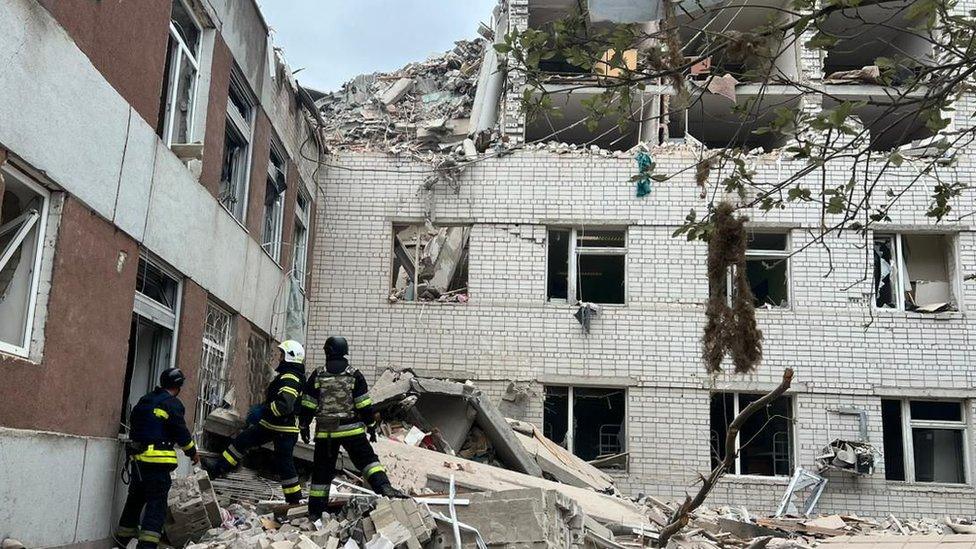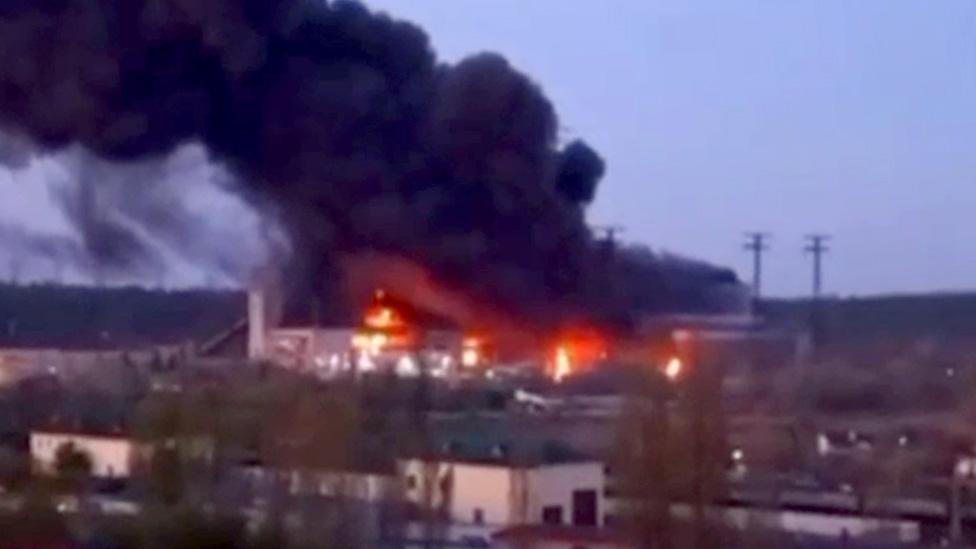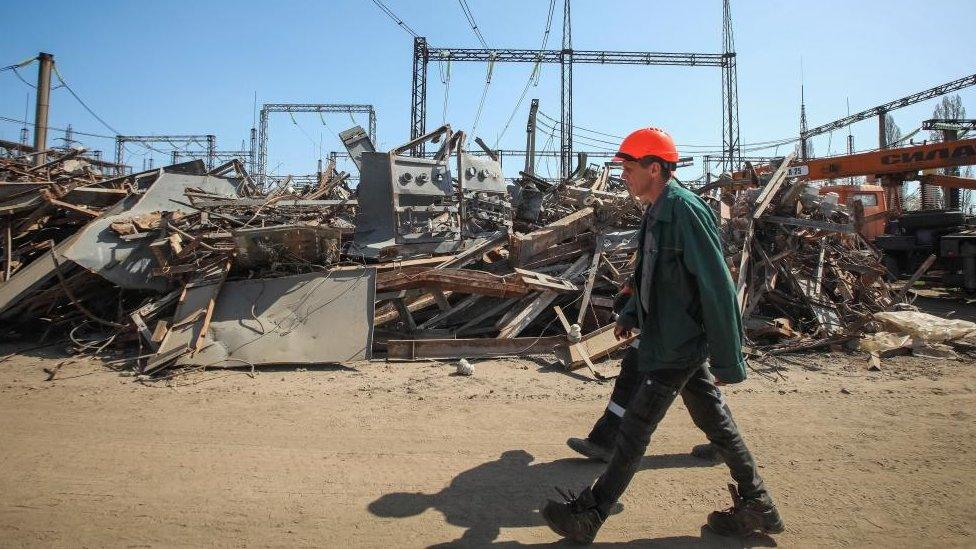Ukraine war: Eighteen dead in Russian missile strike on Chernihiv
- Published

Several floors of an eight-storey building were badly damaged in the Russian missile strike
A Russian missile attack has killed 18 people in the city of Chernihiv in northern Ukraine, according to local officials.
More than 60 including three children were injured in the attack, which hit an eight-storey building in a densely populated area, the city's mayor said.
Three missiles had struck close to the centre of the city, officials said.
The attack came hours after reports of a Ukrainian strike on a Russian military airfield in occupied Crimea.
Details have yet to be confirmed, although local social media channels shared video of an apparent fire on the airfield at Dzhankoi in northern Crimea.
In Chernihiv, acting mayor Oleksandr Lomako said one building had suffered a direct hit from one of the Russian missiles and several floors had been damaged. The presidential office in Kyiv said another four high-rise buildings, a hospital, dozens of cars and a higher education institution were all damaged in the attack.
Video from the scene showed people getting off a trolleybus and diving for cover in the city.
Emergency services searched the rubble for victims and officials appealed for the public to come forward to give blood. They initially said 17 people had died but regional chief said later that another person had died and 37 others were being treated in hospital.
President Volodymyr Zelensky said the Russian strike would not have happened "if Ukraine had received sufficient air defence equipment", and he repeated an appeal to Western allies to provide support.
Chernihiv is only 100km (60 miles) from the Russian border.
Parts of the Chernihiv region not far from the city were occupied for several weeks at the start of the 2022 invasion while Russia tried to capture Kyiv to the south.


The city was under siege for more than a month. It was about 70% destroyed and hundreds of civilians were killed, the mayor said.
A theatre in the city was also hit in a missile attack in August 2023 which killed seven people.
In a US TV interview on Monday, the Ukrainian leader also blamed Ukraine's declining air defences for Russia's ability to destroy a key thermal power plant supplying Kyiv and other regions last week.
Mr Zelensky said 11 missiles were fired at the Trypillya plant and Ukrainian forces were only able to bring down seven of them. "Four destroyed Trypillya. Why? Because we had zero missiles. We ran out of all missiles," he told PBS.
Germany has appealed to EU, Nato and other countries with an initiative to shore up Ukraine's air defences.
The German defence ministry said it was "aimed at activating and motivating a large number of countries to deliver something in the short term" as a result of a "change in the threat situation" in Ukraine.
Several European leaders have indicated that they could support such a move, and both Denmark and the Netherlands have recently announced new packages of aid.
Dutch Prime Minister Mark Rutte said at a meeting at Nato HQ in Brussels that Europe had to continue helping Ukraine.
"It is clear that mere good words and good intentions are not enough for Ukraine," he said. "Nor is financial support alone. More air defences are needed and they are needed fast."
Germany's foreign ministry said the issue would be discussed at a G7 meeting at Capri in Italy later on Wednesday.
Also UK Foreign Secretary David Cameron said on Tuesday he was hopeful that the G7 could "coalesce" around a plan to use interest from frozen Russian assets to support Ukraine financially.
Ukrainian Foreign Minister Dmytro Kuleba is attending the meeting, and will appeal for more weapons.
Kyiv has been waiting for months for a $60bn (£48bn) US aid package to get through Congress, but it has been held up by Republican objections.
Mr Zelensky said the world had shown unity in assisting non-Nato country Israel when it came under Iranian missile attack, and he called for the same political will to be shown to Ukraine.
Related topics
- Published11 April 2024

- Published15 April 2024

- Published17 April 2024
